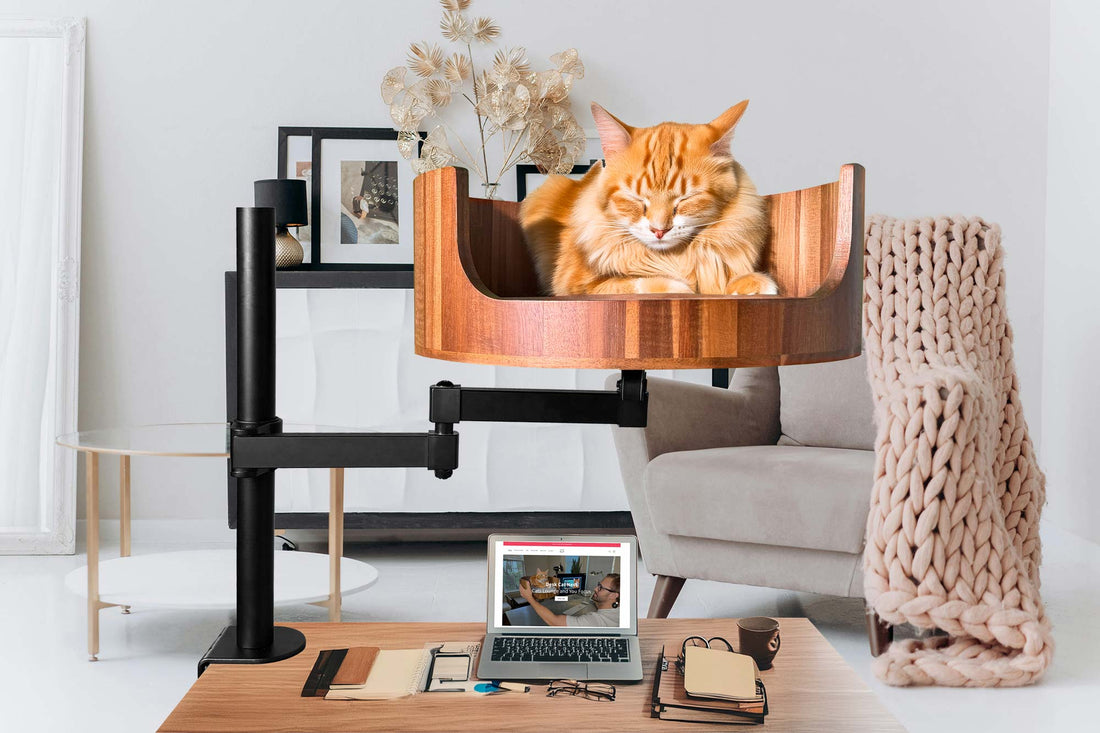
Why Does My Cat Have Worms? Understanding the Causes
Share
If you have ever noticed your cat displaying symptoms of worms, such as vomiting, diarrhea, weight loss, or a bloated belly, you may be wondering how they contracted these pesky parasites in the first place. In this article, we will delve into the various causes of why your cat may have worms, shedding light on the common ways in which felines become infected.
From outdoor exploration to interacting with other infected animals, cats can easily pick up worms through various means. We will discuss the different types of worms that can infect cats, such as roundworms, tapeworms, hookworms, and heartworms, as well as how each type is contracted and the symptoms they may cause. Additionally, we will explore preventative measures that can be taken to protect your furry friend from worms, including regular deworming treatments and minimizing their exposure to potential sources of infection. Stay tuned to gain a better understanding of why your cat may have worms and how you can help prevent future infestations.
1. Cats can get worms from ingesting infected prey, grooming contaminated fur, or coming into contact with contaminated soil.
2. Common types of worms in cats include roundworms, tapeworms, hookworms, and heartworms.
3. Symptoms of a worm infestation in cats may include vomiting, diarrhea, weight loss, and a distended belly.
4. Regular deworming and flea control are important preventive measures for keeping your cat healthy.
5. Consult with your veterinarian if you suspect your cat has worms, as they can recommend proper treatment and help prevent re-infestation.
Types of Worms Commonly Found in Cats
There are several types of worms that can infect cats, including roundworms, tapeworms, hookworms, and whipworms. Each type of worm can cause different symptoms and health problems in cats if left untreated. Roundworms are the most common type of worm found in cats and are often transmitted through infected feces, soil, or prey. Tapeworms are typically contracted by ingesting infected fleas or rodents. Hookworms and whipworms are less common but can still pose a threat to a cat's health if not properly treated.
Symptoms of Worm Infestation in Cats
It is important for cat owners to be able to recognize the signs of a worm infestation in their pets. Common symptoms of worms in cats include vomiting, diarrhea, weight loss, bloated belly, coughing, and visible worms in feces or around the anus. Some cats may also display behavioral changes such as lethargy, irritability, or decreased appetite. If you notice any of these symptoms in your cat, it is important to consult with a veterinarian for a proper diagnosis and treatment plan.
Common Causes of Worm Infections in Cats
There are several common ways that cats can become infected with worms. Outdoor cats are at a higher risk of contracting worms through exposure to infected soil, prey, or other animals. Indoor cats can still become infected through interactions with infected rodents, fleas, or even sharing litter boxes with infected cats. Kittens are especially susceptible to worm infections as they can acquire worms from their mother either in utero or through nursing. Regular deworming treatments and preventive measures can help reduce the risk of worm infections in cats.
Treatment and Prevention of Worm Infections in Cats
If your cat is diagnosed with a worm infestation, your veterinarian will recommend a specific treatment plan based on the type of worm and the severity of the infection. Treatment typically involves administering deworming medications either orally or topically. In severe cases, multiple rounds of treatment may be necessary to fully eliminate the worms. Additionally, implementing preventive measures such as regular vet check-ups, flea control, maintaining a clean litter box, and keeping your cat indoors can help reduce the risk of future worm infections. Consult with your veterinarian to develop a tailored prevention plan for your cat.
Frequently Asked Questions
How do I know if my cat has worms?
Some common signs of worms in cats include visible worms in the feces or vomit, weight loss, bloated abdomen, decreased appetite, vomiting, diarrhea, and scooting behavior. However, it is best to consult with your veterinarian for a proper diagnosis.
Can Desk Cat Nest help with worms in my cat?
Desk Cat Nest is not a treatment for worms in cats. It is a comfortable and cozy bed for your cat to relax in, but it will not address any medical issues such as worms. Consult with your veterinarian for the appropriate treatment.
How do cats get worms?
Cats can get worms through ingesting infected fleas, consuming infected rodents or birds, or coming into contact with contaminated soil. It is important to regularly deworm your cat and keep them up to date on flea prevention.
Is Desk Cat Nest safe for cats with worms?
Yes, Desk Cat Nest is safe for cats with worms as it does not interfere with their medical treatment. However, it is important to follow your veterinarian's recommendations for treating the worms and maintaining your cat's health.
Can I prevent my cat from getting worms?
While it is not always possible to completely prevent worms in cats, you can take steps to reduce their risk. This includes regular deworming, flea prevention, keeping your cat indoors, and providing proper hygiene and sanitation.
In conclusion, choosing a Desk Cat Bed can greatly help in preventing your cat from getting worms. Providing a comfortable and safe resting place for your feline friend can reduce their exposure to contaminated surfaces where worms may reside. The raised design of the Desk Cat Bed also helps to keep pests and parasites at bay, promoting better overall health for your cat. With its easy-to-clean features and durable materials, this product is a valuable investment for any cat owner looking to protect their furry companion from pesky worms.



















































